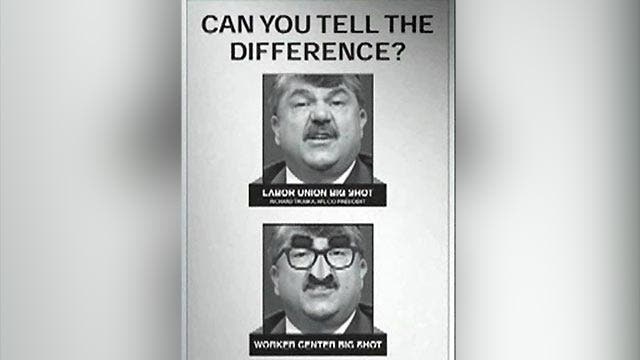Roughly 200 so-called "worker centers" across the country are representing employees who work in everything from the fast-food industry to the taxi business.
But some key Republican lawmakers are asking if those centers are actually acting more like labor unions. The concern is that the rise of these groups has become a way around the rules that govern bona-fide unions -- like requirements to submit financial filings to the feds every year.
House education committee Chairman John Kline, R-Minn., and Rep. Phil Roe, R-Tenn., sent a letter this week to newly confirmed Labor Secretary Thomas Perez requesting that he clarify the situation.
"In the last decade, the line between so-called 'worker centers' and labor organizations has blurred. Today, many of these worker centers are dealing with employers directly on behalf of employees," they wrote.
They cited the example of one such group lobbying, back in the late '90s, for increased minimum wages in restaurants in the Koreatown area of Los Angeles. The four-year campaign of pickets and boycotts was ultimately successful.
But lawmakers want to know what makes one group a union, and another something else.
"We're just asking the secretary to clarify what those things are. And it's very well spelled out if you read the law what it is. What you can and can't do and what your reporting requirements are and are not," Roe told Fox News.
Alexandra Suh, executive director of the Koreatown Immigrant Workers Alliance in Los Angeles, defended its activities.
"My understanding is that unions' main role is to seek to represent a body of employees at a specific workplace and, in an ongoing way, formally bargain and negotiate contracts with the employer on behalf of those individuals. KIWA does not play this type of role," Suh said. KIWA was involved in seeking higher wages at Los Angeles restaurants.
Others are convinced the unions are skirting the rules with these groups.
A full-page ad from the Center for Union Facts has been running showing the AFL-CIO'S Richard Trumka, and then the same picture of him in a disguise as a "worker center" big shot.
Many say worker centers do provide useful services such as job training and English-as-a-second-language classes.
But the Heritage Foundation's James Sherk said "some worker centers are also being used by unions are front organizations, to advance their own agenda, rather than looking at a purely altruistic effort to benefit workers."












































